The posturing continued in Jupiter, Fla. on Thursday, with the MLB owners and the Players Association offering another performance of Kabuki theater. All week the discourse was more about showmanship than actual substance.
With huge financial issues to settle and time running short, the two sides have spent their days making proposals and counter proposals by pushing pennies across the table to each other.
Hey, after doing nothing to settle this labor dispute for more than two months – after the owners locked the players out on Dec. 2 – the warring factions are in the same room for more than 15 minutes at a time, breathing in the same oxygen.
This is being called “incremental progress” on the interwebs. Why don’t we try calling it for what it is? Start with basic hubris, toss in an extra-large dose of arrogance, and top with excessive pride.
What we’re seeing (or not seeing) is the staging of negotiations without negotiating. These MLB elitists have the pomposity to believe that their game is too important and too beloved to fail and crash in popularity. When the severe damage is done, the lords of baseball are supremely confident in the fans rushing into the ballparks to embrace the players as returning heroes while sliding debit cards into conveniently located machines to enrich the owners.
Commissioner Rob Manfred has imposed a Monday deadline: reach a deal, or the regular season won’t start on time. And if the season doesn’t start on time, the missed games won’t be squeezed into the schedule to have a full 162 games. And the players won’t be paid for games missed.
All of this could be a bluff to apply pressure. We know that and understand it. But what we don’t understand is how this snarling man – working on behalf of the team owners – can procrastinate until late February before showing urgency in these proceedings.
Maybe the answer is pretty simple: MLB’s goal all along has been to crush the players to finish the rout that began when the previous collective bargaining agreement was signed in December, 2016. The players rolled over and took a beating, and now they want to grab everything back in this CBA.
I understand the players’ point of view, and I don’t blame them for wanting to have a more level share of revenue distribution. But at least two other things are also true: (1) it’s naive for the players to think they can restore all that this next labor agreement; and (2) players aren’t likely to succeed by playing hardball. If the owners had any real interest in cutting a deal, they would have presented a sequence of meaningful offers by now instead of putting their pocket change on the negotiating table.
Both sides, of course, are taking the fans for granted and are oblivious to the coming reality.
– This sport continues to lose popularity, especially with young fans. The NFL has massacred MLB in the national quest for popularity – that battle was over long ago – and the NBA has staked out a huge advantage over MLB in the cultural zeitgeist. College football is massive in many parts of the nation where MLB doesn’t make much of a mark on the map.
– This infuriating labor negotiations will turn off more fans but isn’t MLB’s biggest problem. The No. 1 drag on the game is the product that MLB serves to the public. It is slow, frustratingly low in action and excitement, and locked into a much duller existence because of the superabundance of advanced analytics.
– As Tom Verducci of SI pointed out: in 2021 the average game lasted three hours and 11 minutes, a record … and with fewer balls in play, fewer hits, substantially more defensive shifts and a brain-numbing rise in the number of pitching changes being made in games.
– Since the past CBA went into effect, the average waiting time to see a ball put in play increased from 3 minutes and 40 seconds to 4 4 minutes and 7 seconds … that’s a 13% increase in dead time since the start of the 2017 season … and according to Verducci a 29% increase of dead time over the last 25 years.
– In 2017, MLB teams combined for 42,215 hits. Last season, the overall hits total was down to 39,484. Excluding the shortened 2020, that’s a loss of 2,731 hits over the span of four seasons. And compared to 2017, there were more than 6,000 fewer batted balls in play in 2021. But no worries; the number of pitching changes and strikeouts are way, way up.
– As Verducci notes, the just expired CBA that began with 2,111 more hits than strikeouts ended with 2,661 more strikeouts than hits.
So when this impasse breaks and the ballparks open for business, fans will pay to see the same boring game that’s been taken over by analytics departments and efficiency-minded general managers.
The thing is, the emphasis on efficiency is working from a winning-losing standpoint. The systemic thinking that filters down to the dugout is very beneficial for smart front offices that can’t afford jumbo payrolls … and come to think of it, this new way has been good for teams of all payroll sizes depending on how well they implement analytics.
But just because the intelligent use of analytics can help teams win more games, it reduces the entertainment value and the aesthetics of a game that used to be more athletic, aggressive, creative and thrilling. Only MLB and the union would shut the game down and bring the product back in the same, tedious, freeze-frame state. It’s spectacularly stupid.
We’ve seen baseball recover from drastic labor shutdowns in 1981 and 1994. But such a challenge, if necessary, would be much different and more difficult this time.
In recent years MLB has been pummeled by a cheating scandal, a health crisis, a sleepwalking style of play and horrendous leadership.
The Astros won a World Series and got it done by cheating, and the fake tough-guy commissioner let them off easy.
There’s the absurdity of the broken process that selects players for induction into the Baseball Hall of Fame – with baseball writers making news instead of reporting it by serving as the Hall’s police force to block candidates that don’t pass a morality test.
With Covid-19 death rates rising rapidly in 2020, the hopelessly out of touch owners and players went after each other in prolonged, public bickering about how much the players would get paid in a 60-game schedule made necessary by a deadly pandemic.
The owners cannot be trusted to tell the truth about the profitability of their franchises. We know this because one team must share its annual financials with shareholders: the Atlanta Braves, which are owned by Liberty Media. For 2021 the Braves reported $568 million in revenue for 2021, and $20 million in operating income. Let’s cite operating income before depreciation and amortization (OIBDA.) After listing a $53 million loss in 2020 because of the pandemic-truncated season, the Braves made up for it with a $104 million gain in ’21. Remember all of this the next time Manfred starts mewling about unselfish owners that aren’t in it for the money – no, they’re committed to community service by owning a baseball franchise. Sure.
And now we have the CBA feud that’s terribly timed and out of touch with reality. During the pandemic Americans buried loved ones, lost jobs, had their hours cut back and faced medical and financial hardship. Americans also learned that they didn’t need baseball; we found other things to do with our time and our money.
You’d think that MLB owners and players would be filled with humility after Covid, and the sacrifices that have been made by millions of citizens. But they’re just the opposite of that … and somehow expect the fans to love them and support them and remain loyal as always. You don’t mess with the fans’ emotions by taking the game away again only two years after much of the 2020 season was taken away by Covid repercussions.
If regular-season games are lost – and let’s hope that isn’t the case – the horizon won’t be the same. When baseball people finally return to opening the stadiums and playing baseball, they’ll begin to understand the fallout caused by their epic miscalculation.
What – or who – can pull baseball back up this time?
It won’t be the distribution of games on TV or streaming. There’s all sorts of entanglements that haven’t been sorted out. I heard from a Cardinal fan in Iowa who can’t watch Cardinals games. Why? Because the Cardinals are blacked out in Iowa and their games are unavailable on MLB.TV streaming. And Bally Sports Midwest isn’t available because of a dispute between the regional network and carrier. That type of scenario is becoming more prevalent in all regions of the nation. And it’s sad and senseless.
It won’t be the ballparks. When MLB went about the task of stimulating business in the aftermath of ‘94, the challenge coincided with the ongoing wave of ballpark construction – most of which tapped into the game’s strong sense of nostalgia by being new parks that had old-timey features.
We know that it won’t be the quality of the game, and the enjoyment of the game. The usual 3-plus hours of strikeout-shift-walk zombie ball will resume.
After the disgrace of 1994, MLB caught a big break by Cal Ripken Jr.’s pursuit of Lou Gehrig’s seemingly unbreakable record for most consecutive games played. This turned into a national celebration over several months, culminating with the admired Ripken breaking the record on Sept. 6, 1995 to provide one of the all-time, feel-good moments in MLB history. There’s no Ripken out there now.
By 1998 the game was more stabilized – thanks to Cal Jr. – but still needed a boost. Enter Mark McGwire vs. Sammy Sosa in a home-run contest that captivated the nation. Empty ballparks were suddenly filled to capacity – and that was just to see McGwire take batting practice. This showcase gave MLB a tremendous increase in energy and popularity. Despite what revisionist-history phonies will insist now, McGwire vs. Sosa made baseball fun again. People couldn’t get enough of the daily HR watch, and the blow-by-blow reports. No home-run derby will fix baseball in 2022. If anything, folks are tired of home runs and crave doubles and triples and slashing singles and daring baserunning.
Again, who will rescue baseball from itself? Can’t play every regular-season game at the Field of Dreams in Iowa.
Can’t lean on Shohei Otani, because he plays for Anaheim and is largely inaccessible and unseen. (Ask Mike Trout about that.)
The immense local popularity of teams like the Dodgers, Yankees and Red Sox – who win with monstrous payrolls – doesn’t carry over into other markets. If anything, there’s resentment of those teams in too many places. The Astros remain despised for their crass cheating. Fans say they love underdogs – but if so, it only goes so far. The Tampa Bay Rays are remarkable in what they accomplish on mini-size payrolls. But the Tampa Bay area doesn’t care much about the team – so why would anyone else?
The national TV contracts will keep the owners happy, but the fans indirectly pay for that … and they won’t be nearly as happy.
On Friday, Manfred showed up for the negotiating sessions for the first time this week. And Cardinals owner Bill DeWitt Jr. made his first appearance as well. Should we view that as a good sign? DeWitt rates high among the most influential owners, and Manfred trusts his advice. I’m curious; I don’t think Manfred and DeWitt would be on site unless there was something serious to discuss. Obviously, I could be dreaming.
I’d be stunned (in a good way) to see the owners and players suddenly spring into fast–paced negotiations this weekend to produce a new CBA.
Until we learn otherwise, I have to assume that the two sides remain planted in the same spot, waiting for the opposite side to crack. But to this point all that’s cracking is the game itself, the popularity of the sport, and the relationship with fans.
Thanks for reading …
Make it a good weekend for yourselves…
–Bernie
Bernie invites you to listen to his opinionated sports-talk show on 590-AM The Fan, KFNS. It airs Monday through Thursday from 3-6 p.m. and Friday from 4-6 p.m. You can listen by streaming online or by downloading the “Bernie Show” podcast at 590thefan.com — the 590 app works great and is available in your preferred app store.
Follow Bernie on Twitter @miklasz
All stats used in this column were sourced from Baseball Reference, Stathead and SI.com
For the last 36 years Bernie Miklasz has entertained, enlightened, and connected with generations of St. Louis sports fans.
While best known for his voice as the lead sports columnist at the Post-Dispatch for 26 years, Bernie has also written for The Athletic, Dallas Morning News and Baltimore News American. A 2023 inductee into the Missouri Sports Hall of Fame, Bernie has hosted radio shows in St. Louis, Dallas, Baltimore and Washington D.C.
Bernie, his wife Kirsten and their cats reside in the Skinker-DeBaliviere neighborhood of St. Louis.




